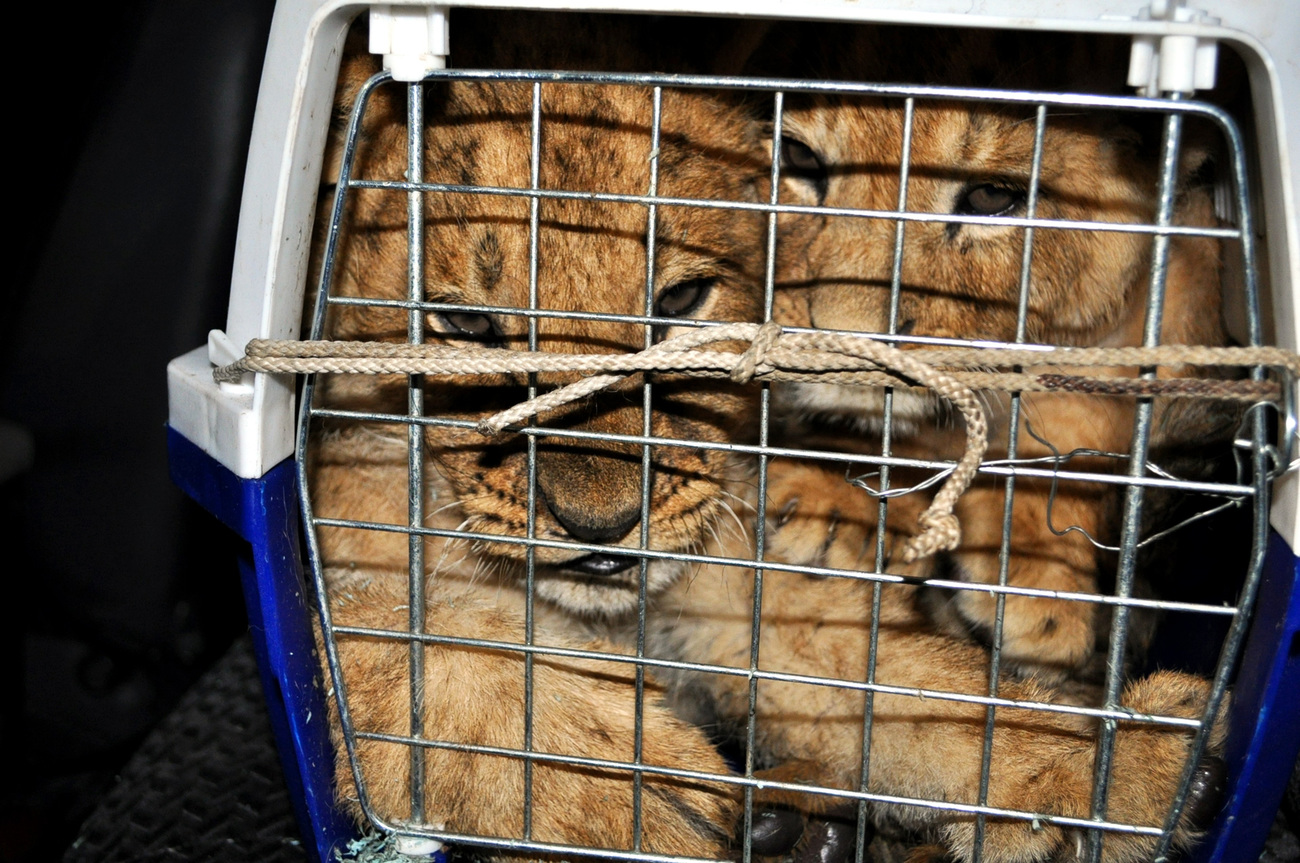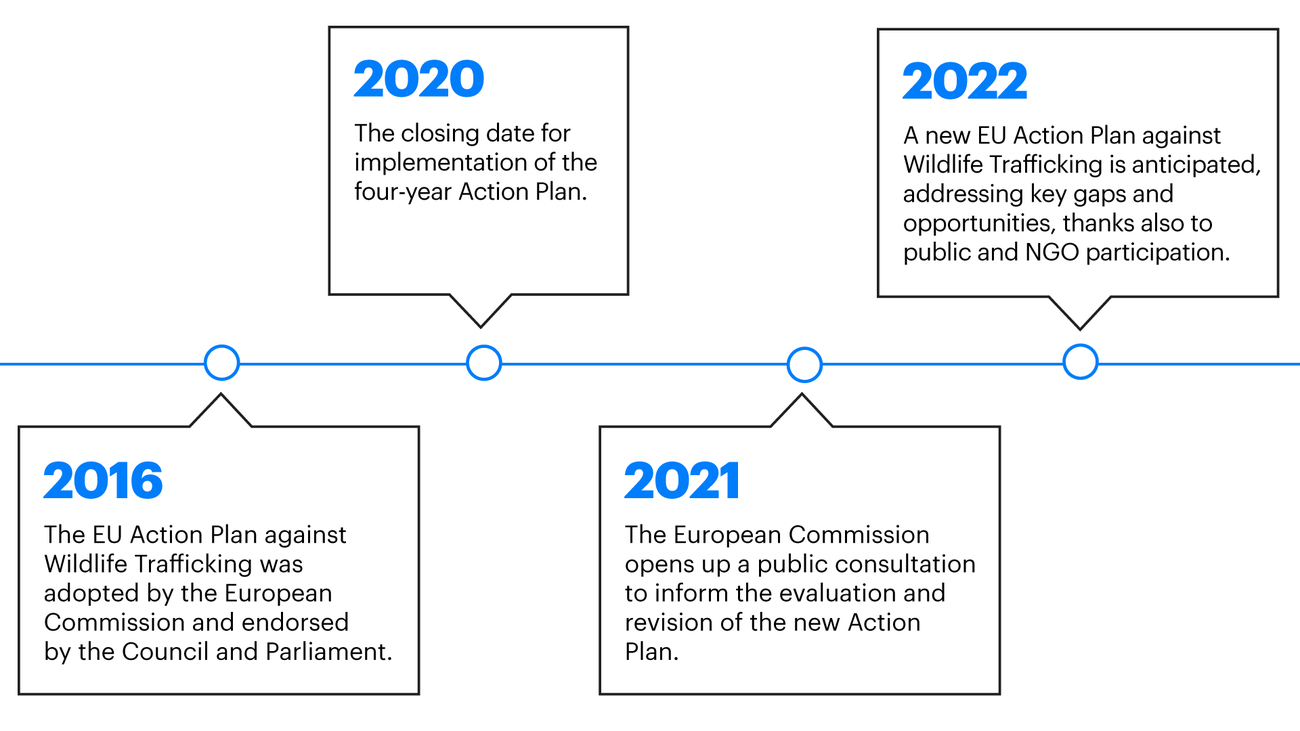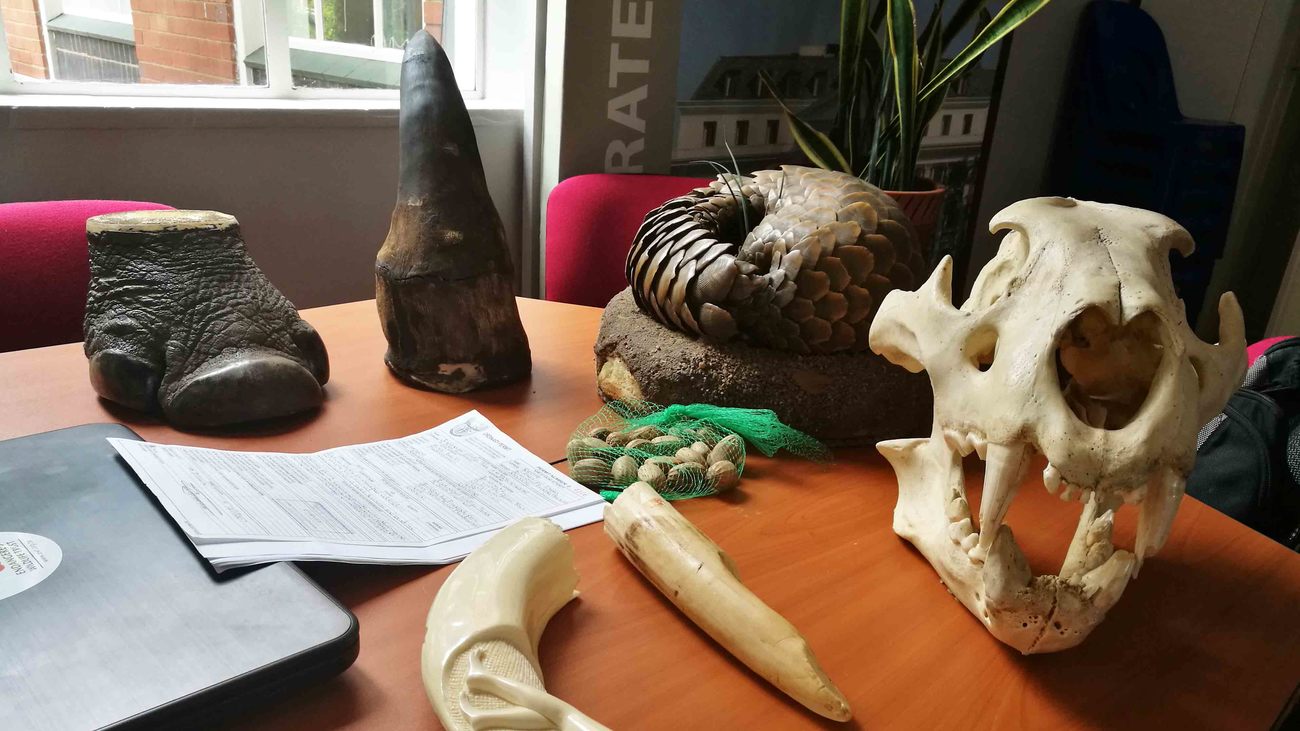Disrupting Wildlife Cybercrime – Global
Wildlife crime is a matter of supply and demandpublic consultation on the EU Action Plan against Wildlife Trafficking: raise your voice
public consultation on the EU Action Plan against Wildlife Trafficking: raise your voice

Illegal wildlife trade is estimated to be worth up to USD$23 billion a year and is considered the biggest direct threat to the survival of numerous animal species. A large part of illegal wildlife trade involves live animals, either for the pet industry or food markets around the world.
The EU Action Plan against Wildlife Trafficking is currently up for renewal and public consultation. Adopted in 2016 by the European Commission, the EU Action Plan against Wildlife Trafficking created a stronger political momentum to fight wildlife crime, increased cooperation among enforcers, and the greater EU role and profile in international negotiations. Active until 2020, it detailed 32 lines of actions for prevention, enforcement and global partnerships in the space.

Even with decent progress made during the four years of the Action Plan implementation, wildlife trafficking still constitutes one the main threats to the conservation of species, with profoundly negative impacts also for ecosystems stability, and for the national, regional and global security.
This December, a public consultation period invites citizens and organisations to provide evidence and share views on the effectiveness, efficiency, coherence, relevance and EU added value of the EU Action Plan against Wildlife Trafficking. The results of the consultation will inform the evaluation and revision of the Action Plan.
The Action Plan warrants improvement in several critical areas
- Fighting wildlife cybercrime: While the original Action Plan helped to boost awareness and the capacity of relevant experts in tackling wildlife cybercrime, the issue of online markets and trade must be a higher priority on the political agenda. We believe wildlife cybercrime should be given the same level of priority as other cybercrimes that threaten human health, the economy, security and education.
- Reducing consumer demand for wildlife products: IFAW seeks the implementation of evidence-based demand reduction initiatives in key consumer countries, including within the EU. The Action Plan should encourage and support research into behaviour-change in key consumer markets for the most highly demanded wildlife products, to ensure effective demand reduction initiatives are implemented.
- Animal welfare: Very important to IFAW is the care and welfare of seized or confiscated animals that were illegally traded across the EU. The issue remains a challenge for EU Member States with different—and sometimes inadequate—levels of resources and expertise. Animal welfare and wildlife conservation imperatives could be improved through training, consistent and transparent reporting, and the establishment of a network of rescue facilities and sanctuaries for confiscated animals.
- Involvement of the private sector: The 2016 Action Plan suffered from a lack of involvement of the private sector and civil society across Europe, and this has led to overall weak or unclear results. The private sector (banks, transport companies, courier companies, etc.) and non-governmental organisations play an important role and should be part of both EU and national planning and intelligence processes.
- Alignment, funding and monitoring: The Action Plan’s implementation has also suffered from structural flaws; for instance, it is nearly impossible to measure progress as there are no set indicators or baselines, Member States have, for the most part, not shared public plans or allocated sufficient resources to address wildlife trafficking.

The European Commission’s current public consultation for the revision of the EU Action Plan against Wildlife Trafficking is a welcome step.
IFAW has high hopes that the next version of the Action Plan will address the urgent need for transformative change in the way we interact with wildlife. The critical connection between the health of nature and human health must be reflected in the new Action Plan.
Now more than ever, we call upon all stakeholders to help make the next version of the Action Plan an innovative and cutting-edge policy tool: a more inclusive, effective, and accountable plan that delivers greater results on both national and international stages.
The new Action Plan must of course also address the lessons learned from the current COVID-19 pandemic caused by SARS-CoV-2. As a zoonotic disease—like SARS-CoV in 2003—these viruses are transmitted from animals to people. Live animal markets, such as where these pandemics both originated, continue to exist right here in Europe and around the world.
The European Commission’s evaluation of the EU Action Plan against Wildlife Trafficking will prepare the ground for a revision of the Action Plan. We invite everyone to participate in this crucial European Commission public consultation; every voice counts!
Respond to the questionnaire in three easy steps
- Visit Wildlife trafficking – EU action plan evaluation
- Enter your sign-in details if you already have an account or select the ‘Create an account’ below the text box.
- Complete the questionnaire. Starting on Page 3 “About you”, use our IFAW responses as guidance for questions 1-4.
Note: If you are unable to use the online questionnaire, you can email your feedback to env-cites@ec.europa.eu
This public consultation has three parts: (1) about you, (2) public consultation, and (3) expert commentary. The instructions above refer to part 2, as addressed to a ‘non-expert’ general public. If you are also interested in the third part of the European Commission questionnaire—addressed to experts—or if you want to discover more about IFAW’s position for the revision of the Action Plan, please read more here.
Related content
Every problem has a solution, every solution needs support.
The problems we face are urgent, complicated, and resistant to change. Real solutions demand creativity, hard work, and involvement from people like you.